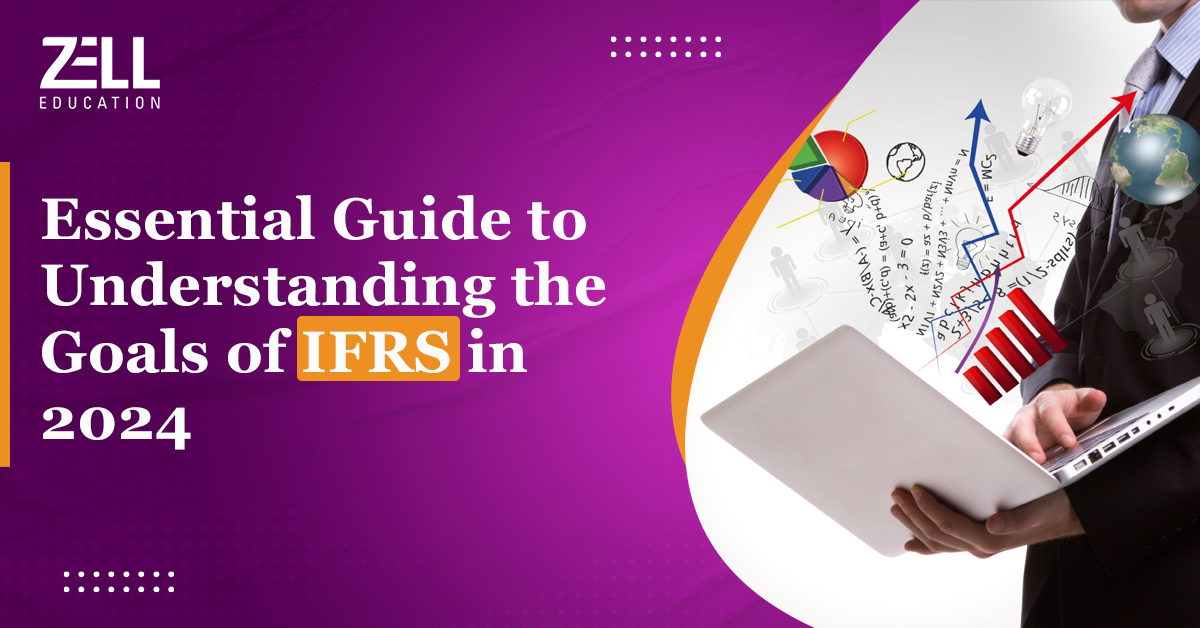How to Become CPA in Canada: The Beginner’s Guide
The Chartered Professional Accountant Qualification in Canada is an accounting qualification that allows you to work as a professional accountant in all provinces of Canada. If you have just finished graduation and want to study accounting in Canada or if you are already an accounting professional and would like to know how to become a CPA and explore your career in Canada, you’ve come to the right place.
How to Become a CPA Canada?
All the exams and modules required for CPA Canada must be completed in Canada. So if you’re planning to pursue CPA Canada as an international applicant, you must have a valid visa to be able to give these exams. In order to be a fully qualified Canadian CPA, a candidate must clear three major stages –
1. Prerequisite education – CPA Prep
2.CPA Professional Educational Program – CPA PEP
3.The Common Final Examination – CFE
1. Eligibility Criteria
- A baccalaureate or bachelor’s degree
- Should have completed CPA Canada’s Professional Education Program (PEP) OR have a graduate programme at a CPA-accredited post-secondary institute accredited
Note – Legacy credential holders should have a baccalaureate or bachelor’s degree and should have completed the required education programme from the legacy body.
2. Pathways To Becoming A CPA In Canada
If you are an international aspirant, you may either start from scratch by enroling in a master’s programme in Canada and clearing three stages; or you may claim some exemptions based on your current qualifications and experience. There are two main possibilities for you to be able to claim these exemptions.
- Through an MoU
CPA Canada has a memorandum of understanding (MoU) with certain accounting bodies in the world. If you are a qualified Chartered Accountant or Public Accountant in a country with an MoU with CPA Canada, you may be able to claim an exemption and directly be eligible for the CFE. Since The Institute of Chartered Accountants of India (ICAI) also has an MoU with CPA Canada, Indian Chartered Accountants can directly appear for the CFE and skip the CPA Prep and CPA PEP stage. However, you still need to have a valid visa to enter Canada and give the exam. - Through an MRA
Another option for accounting professionals to become a CPA in Canada is if the concerned accounting body of their country has a mutual recognition agreement (MRA) with CPA Canada. In India, after the ICAI Chartered Accountancy, the most commonly pursued accounting qualification is that of an ACCA or that of a US CPA. If you are a US CPA, you may be able to get directly registered as a CPA Canada. However, there are certain additional requirements you may need to fulfil such as passing the Uniform CPA Examination and being in compliance with the Continuing Professional Education (CPE) requirements of your State Board. - Through the Undergraduate Route
If you do not fulfil any of the above requirements, you will have to pursue CPA Canada by clearing all three stages after your undergraduate studies. The three stages of CPA Canada are described below. - CPA Prep
In order to qualify as a CPA PEP pre-requisite, a candidate must have completed a 4-year undergraduate degree or a graduate degree with at least 120-credit hours in Financial Accounting, Managerial Accounting, Accounting and Financial Fundamentals, Information Technology, and Economics. If a candidate did not study the above subjects during graduation, they may have to take these required preparatory courses before enrolling for CPA PEP. - CPA PEP
Once you have successfully completed the CPA Prep stage, you are eligible to enrol for CPA PEP. Alternatively, if you have at least 8 years of relevant work experience in the field of accounting, you may be eligible to enrol for CPA PEP without the undergraduate degree requirement. This is a graduate-level programme and consists of 6 modules –
- Core 1 & 2 – Financial Reporting, Strategy and Governance, Management Accounting, Audit and Assurance, Finance, and Taxation
- Elective 1 & 2 – Any 2 out of Assurance, Performance Management, Taxation, and Finance
- Capstone 1 – Leadership Skills, Professional Skills, and Integration of Competencies
- Capstone 2 – Writing skills and preparation for CFE
Certain post-secondary institutions provide certification programmes like a Master of Accounting or a graduate diploma in accounting. Students who pursue the Master of Accounting programme can claim exemption from the CPA PEP stage and directly opt for the CFE.
3. CFE
The Common Final Examination is the final stage to be cleared in order to qualify as a CPA in Canada. It is a 3-day exam that covers all the subjects that you have learned in the PEP stages. The maximum duration for each of these exams has been listed below.
| Exam Day | Cases Covered | Max Duration |
| Day 1 | Case linked to Capstone 1 Module – This exam will test your understanding of the Capstone 1 module and assess skills such as professional judgement, critical thinking and decision-making. This exam is common to all and will test your knowledge of the core subjects. Candidates will also have access to the Capstone 1 case during this exam. |
4 hours |
| Day 2 | Role Case – This will test the Financial Reporting and Management Accounting competencies of a candidate in addition to one elective out of four. During this exam, the candidates will be provided with one case through which they will be required to demonstrate their depth in these subjects. There may also be elements pertaining to the Core or Entry Column competencies. |
5 hours |
| Day 3 | The Multi-Competencies Case – This exam will be common to all candidates and will expect candidates to have knowledge of the Core modules. On this day, candidates can expect 3 or 4 cases that test all of the 6 competency areas with an opportunity for assessment of Financial Reporting and Management Accounting. |
4 hours |
The Common Final Examination (CFE) Blueprint, which is available on the official website of CPA Canada, will give you the latest information about the CFE and the examination format.
Work Experience
In addition to completing all the modules and exams, CPA Canada requires you to have a minimum of 30 months of relevant accounting experience. This work experience should be supervised and must provide detailed reports that will be assessed thoroughly before being approved.
When is CPA Canada the right choice for you?
If you are a Canadian resident and are planning to work as an accounting professional in a Canadian organisation, getting a local CPA license in Canada is a preferable option. Even if you are an international professional but are planning to migrate to Canada for work, getting the CPA Canada qualification might help you in your career.
Who should not pursue CPA Canada?
If you are an international aspirant looking for global opportunities including but not exclusive to Canada, you may want to consider other public accounting qualifications. Students looking to explore opportunities abroad should first think about which qualification to pursue before thinking about how to become a CPA.
If you are currently in India, and you want to earn a global accounting qualification, we would recommend you pursue ACCA or US CPA because of the scope of the course. If you would like to be eligible for work in the UK, Singapore, or UAE, ACCA might be a better choice for you! It is recognised in over 180 countries and has MRAs with several well-known accounting bodies of the world. If you are interested in ACCA and would like to know more, feel free to check out our ACCA Course.
Another factor that should be considered is the ease of giving the exams. You are required to have a valid work or study visa to be able to give the CPA Canada exams which can be quite tedious and expensive. Alternatively, US CPA can be taken from India itself and if when get the opportunity to work in Canada, US CPA can help you directly qualify for CPA Canada because of the existing MRA. The US CPA qualification is recognised worldwide and can open doors to opportunities in Europe, Asia and North America. If you are an accounting professional looking to boost your career or just curious to learn about the course, we suggest you check out our Certified Public Accountant (CPA) course to learn more.
FAQ
What is better? CPA Canada or US CPA?
It depends on where you are giving the exam from. If you are exploring these options as an international aspirant, US CPA is preferable because it can be taken from India itself.
Can an Indian CS get exemptions in CPA Canada?
Unfortunately, CPA Canada does not offer any exemptions for Company Secretaries of ICSI members. You will have to complete all three stages of CPA Canada in this case.
Do you need work experience for CPA Canada?
CPA Canada requires candidates have a minimum of 30 months of work experience which will have to be verified by the accounting body. You can also enrol in pre-approved training programmes approved by CPA Canada that will give you the minimum practical experience required for the course.








